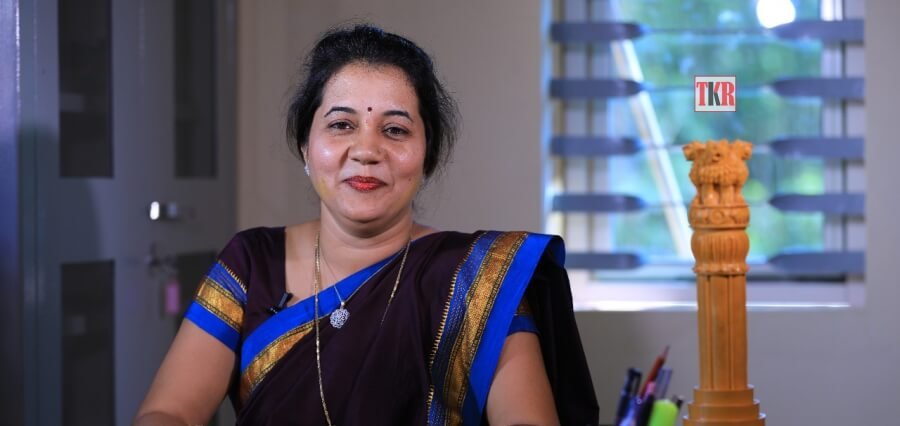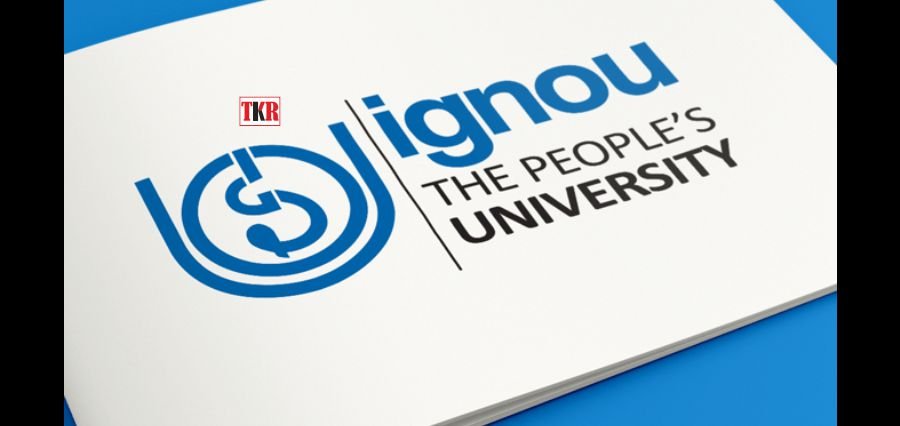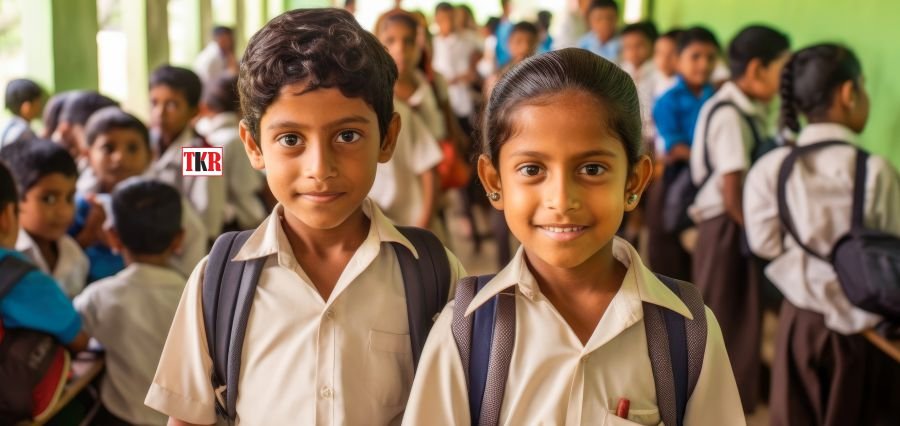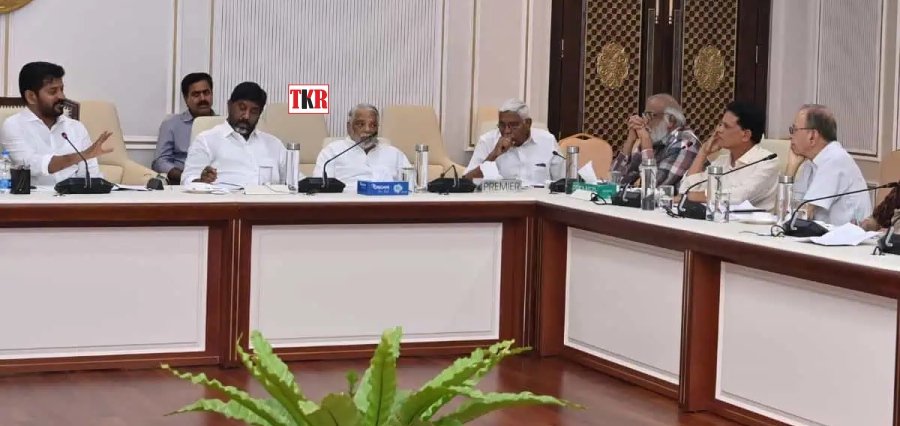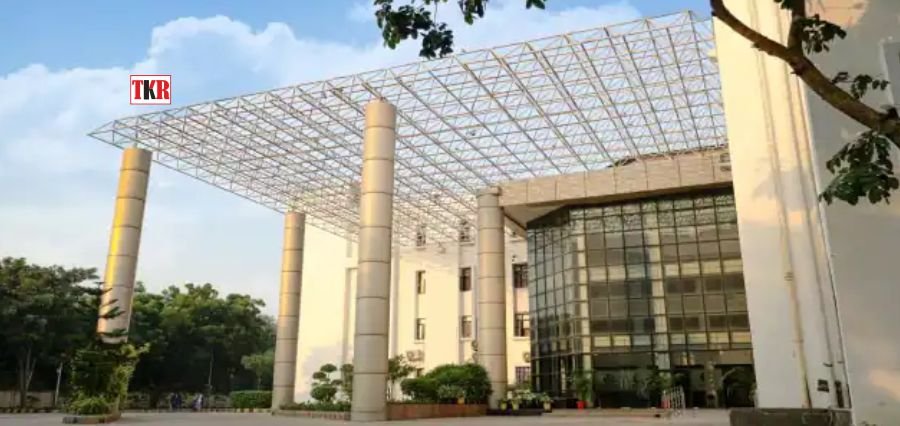With firm dedication, profound insights, and commitment to shaping the future of education for generations to come, Dr Shruti Inamdar has become a renowned name in the education sector. Academic Director and Principal at Chandragupta Maurya Educational Institutions.
Dr Inamdar’s story is one fueled by a profound passion for learning and a steadfast commitment to making a positive impact on both individuals and society as a whole. Her journey unfolds through a tapestry of diverse experiences, each contributing to her evolution as an educator and leader.
From her formative years in formal education to her roles as a dedicated teacher, diligent researcher, and engaged community member, Dr Inamdar’s path has been shaped by a relentless pursuit of excellence in education.
Throughout her career, Dr Shruti has remained attuned to the evolving landscape of education, embracing changes in policies, methodologies, and technologies with an unwavering dedication to enhancing learning outcomes. In doing so, she has navigated through challenges while seizing upon opportunities for innovation, collaboration, and advocacy.
Innovative Strategies for Student Success
Dr Inamdar advocates for a myriad of innovative approaches that have the potential to significantly enhance the learning experience for students, fostering a dynamic and engaging educational environment. Here are some of the innovative strategies she champions:
- Personalized Learning: Tailoring teaching to fit each student’s needs and interests.
- Project-Based Learning: Doing hands-on projects to develop critical thinking skills.
- Blended Learning: Mixing traditional teaching with online resources for flexibility.
- Flipped Classroom: Watching lessons at home and doing activities in class.
- Gamification: Using game elements to make learning fun and engaging.
- Inquiry-Based Learning: Letting students ask questions and explore topics on their own.
- Augmented and Virtual Reality: Using technology for interactive learning experiences.
- Social and Emotional Learning: Teaching skills like self-awareness and empathy.
- Culturally Responsive Teaching: Valuing students’ diverse backgrounds in lessons.
- Continuous Assessment: Giving feedback to help students improve constantly.
- These methods help students become better learners and thinkers, ready for the future.
Meeting Educational Challenges in a Changing World
In today’s fast-changing educational world, Dr Inamdar identifies several challenges:
- Technological Integration: Keeping up with technology in education while making sure all students have equal access.
- Pedagogical Adaptation: Teachers need to adjust their teaching to fit different learning styles and new educational ideas.
- Skills Mismatch: Making sure what students learn matches what employers need, so there’s no gap in skills.
- Digital Divide: Making sure all students, regardless of their access to technology, have the same chances to learn.
- Data Privacy and Security: Protecting student data as technology becomes more important in education.
- Professional Development: Helping teachers learn how to use new tech and teaching methods.
- Equity and Inclusion: Making sure everyone has a fair chance at education, no matter their background.
- Adaptability of Infrastructure: Making sure schools have what they need to use new technology and teaching methods.
- Assessment and Evaluation: Finding new ways to test students’ learning in a changing educational world.
- Globalization: Preparing students for a world where people and ideas are connected globally.
To resolve these challenges, Dr Inamdar suggests these strategies:
- Invest in Technology: Make sure schools have the right technology for all students.
- Train Teachers: Help teachers learn how to use technology and new teaching methods.
- Update Curriculum: Keep the curriculum up to date with what students need to learn.
- Support Equity: Help underserved communities and students get access to technology and support.
- Protect Data: Make sure student data is safe and follow privacy laws.
- Offer Different Learning: Give students different ways to learn, like online or hands-on.
- Work with Community: Partner with businesses and groups to give students real-world learning chances.
- New Assessment: Find better ways to test what students know.
- Teach Cultural Understanding: Help teachers understand different cultures and make sure all students feel welcome.
- Think Globally: Teach students about the world and connect them with people from other countries.
- Stay Flexible: Change rules to fit new tech and teaching, but still keep things fair and high quality.
- Keep Learning: Always check how well these ideas work and change them if needed.
By following these ideas, schools can make sure all students get a great education, no matter what the future brings.
Enhancing Student Success
Dr Inamdar recognizes the significant impact of partnerships and collaborations on educational institutions and their students. She highlights several noteworthy examples:
- Public-Private Partnerships (PPPs): Collaborations between public educational institutions and private entities bring additional resources and opportunities to students. For instance, partnerships with technology firms provide access to advanced tools for digital learning, while collaborations with local businesses offer internships and real-world experiences.
- University-Industry Partnerships: Collaborations between universities and industries foster research, technology transfer, and workforce development. These partnerships drive innovations in STEM education, applied research projects, and industry-aligned curriculum development.
- International Partnerships: Collaborations across borders promote cultural exchange and global understanding. These partnerships encompass student exchanges, joint research, and faculty collaborations, broadening students’ horizons and enriching their educational experience.
- Non-profit and NGO Partnerships: Collaborations with non-profit organizations address social and community needs, offering mental health support, extracurricular activities, and civic engagement opportunities for students.
- Government and Educational Institution Partnerships: Collaborations with government agencies support educational reform, policy development, and funding initiatives. Ministries of education provide resources for infrastructure improvements and teacher training programs, benefiting underserved populations.
- Community Partnerships: Collaborations with local organizations enrich the educational experience beyond the classroom. Partnerships with libraries, museums, and cultural institutions offer resources, programs, and expertise through service-learning projects and educational outreach initiatives.
Dr Inamdar states that partnerships enhance educational institutions’ capacity to provide quality education and support student success. By leveraging diverse resources and networks, institutions create impactful initiatives that benefit students and communities alike. Dr Inamdar believes that fostering such collaborations is essential for driving innovation and addressing the diverse needs of students and society.
A Tireless Pursuit of Excellence
Dr Inamdar has achieved numerous awards and recognitions over the years, highlighting her exceptional contributions to education:
- “A” Excellent Grading in Continuous Comprehensive Evaluation: Recognized by the CBSE board for excellence in evaluation methods.
- Letter of Participation in DOODLE 4 GOOGLE Competition: Acknowledged for participation in this prestigious competition.
- Letter of Appreciation for Conducting District-Level Karate Competition: Commended by the All India Koryugo Juryuk Aratedo Kobudo Kenshukai.
- Letter of Appreciation for Conducting State-Level Football Tournament: Recognized by the Football Association for organizing a successful event.
- Letter of Appreciation from Smriti Zubin Irani: Received from the Human Resource Development Department of the Government of India.
- Awarded as one of the Hundred Highly Effective Principals of the Year 2016: Recognized nationally for outstanding leadership.
- Shiksha Bharati Award 2017: Honored for significant contributions to education.
- Certificate of Excellence – “A” Grading at Continuous Comprehensive Evaluation: Awarded by the Central Board of Secondary Education.
- Indian Leadership Award for Excellence in Education: Acknowledged for exemplary leadership in the field of education.
- Vidya Bhushan Puraskar: Awarded for excellence in academic achievements.
- Most Influential Women Leaders Shaping India’s Future: Recognized for leadership and influence in shaping the future of India.
- National Member of World Common Rights Protection Commission: Appointed as a national member for contributions to rights protection.
- Kannada Rajosthava Puraskara 2023: Honored for contributions to Kannada culture and education.
- Rashtriya Padma Bhushan Samman 2023: Awarded for outstanding service and achievements.
- Bharat Gaurau Ratna Shri Sammaan Council Certificate 2023: Recognized for significant contributions to the nation.
- Bharat Gaurau Ratna Shri Sammaan Council Certificate of Membership 2023: Acknowledged as a member of the prestigious council.
- Pride of Bharat Award 2024: Honored for exemplary service and dedication.
- Certificate of Excellence Plugin PR & Marketing Group Presents National Education Award 2024: Recognized for excellence in education.
- Best Director of the Year 2023 & Inspiring Woman of the Year 2024 by Femme Times Top 10 Principals for 2024: Acknowledged as a top educator and influential woman leader.
These accolades reflect Dr Inamdar’s untiring attitude to excellence and her significant impact on the field of education.
Promoting Empathy and Responsibility
In 2024, Dr Inamdar outlines a comprehensive vision for education, focusing on several key priorities. Foremost among them is Equity and Inclusion, aiming to reduce educational disparities and ensure quality education for all students, regardless of background. Adaptability and Resilience are emphasized, equipping students with critical skills to navigate a complex world. Digital Literacy is promoted to maximize the use of technology for learning and collaboration.
Also, fostering Innovation and Creativity encourages students to tackle emerging challenges. Dr Inamdar stresses the importance of Global Citizenship, promoting empathy and responsibility in an interconnected world. Social and Emotional Well-being is prioritized, supporting mental health and positive relationships.
Lifelong Learning is encouraged to instill a growth mindset in students. Community Engagement is strengthened through partnerships to support holistic development. Sustainability is integrated into the curriculum, empowering students to address environmental challenges.
Finally, Evidence-Based Practice guides decision-making to improve learning outcomes continually. By prioritizing these goals, Dr Inamdar believes educators can create transformative environments that empower students to succeed in the 21st century.

